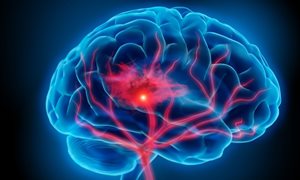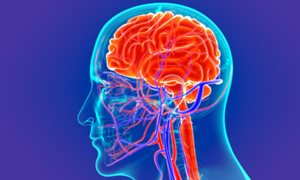13 January 2020
The MOCIA project is coordinated by Esther Aarts, researcher at Radboud University’s Donders Institute, in collaboration with Radboudumc researcher Jurgen Claassen. It involves a public-private partnership consisting of eight academic institutions and eight co-financing partners.
The project aims at being able to signal an increased risk of cognitive decline and improving prevention by developing a personalised lifestyle intervention. “The current ageing of the population is inevitably accompanied by increased numbers of elderly with cognitive decline. Early prevention is crucial to ensure optimal cognitive functioning. However, we are largely unable to identify people with an increased risk of cognitive decline,” says Aarts. "In addition, no personalized interventions to prevent this decline are available."
MOCIA stands for Maintaining Optimal Cognitive function In Ageing: a personalised lifestyle prevention approach. “As part of a global initiative, we will be testing and improving a lifestyle intervention that has already been shown to prevent cognitive decline in elderly people in the Netherlands,” explains Aarts. “We will focus on individual differences, predictive factors and resources with the aim of offering elderly people a personalised intervention at home.”
Besides Radboud University and Radboudumc, the public sector partners are Wageningen University, the University of Twente, Maastricht University, Amsterdam UMC, UMC Groningen and the HAN University of Applied Sciences. The co-financing partners are Danone Nutricia Research, IMEC (OnePlanet Research Center), DSM Nutritional Products, Salut (a VGZ spin-out), Hersenstichting, Reckitt Benckiser/Mead Johnson Nutrition, Alzheimer Nederland, and Wageningen Food & Biobased Research. The project has a scope of €9.17 million, of which €6.25 million is funded by NWO.

The MOCIA project is coordinated by Esther Aarts, researcher at Radboud University’s Donders Institute, in collaboration with Radboudumc researcher Jurgen Claassen. It involves a public-private partnership consisting of eight academic institutions and eight co-financing partners.
The project aims at being able to signal an increased risk of cognitive decline and improving prevention by developing a personalised lifestyle intervention. “The current ageing of the population is inevitably accompanied by increased numbers of elderly with cognitive decline. Early prevention is crucial to ensure optimal cognitive functioning. However, we are largely unable to identify people with an increased risk of cognitive decline,” says Aarts. "In addition, no personalized interventions to prevent this decline are available."
MOCIA stands for Maintaining Optimal Cognitive function In Ageing: a personalised lifestyle prevention approach. “As part of a global initiative, we will be testing and improving a lifestyle intervention that has already been shown to prevent cognitive decline in elderly people in the Netherlands,” explains Aarts. “We will focus on individual differences, predictive factors and resources with the aim of offering elderly people a personalised intervention at home.”
Public-private partnership
The Crossover programme is a new initiative of NWO, and the project proposed by Esther Aarts is one of the first of five to be approved in the current round. This programme is part of NWO’s contribution to the 2018-2019 Knowledge and Innovation Contract. With this contract, government, industry and knowledge institutes are underscoring the top sectors’ ambitions to strengthen the Dutch knowledge and innovation system. Compared with the 'standard' public-private partnerships, the intended projects in the Crossover Programme cover a wider palette of top sectors and other research agendas.Besides Radboud University and Radboudumc, the public sector partners are Wageningen University, the University of Twente, Maastricht University, Amsterdam UMC, UMC Groningen and the HAN University of Applied Sciences. The co-financing partners are Danone Nutricia Research, IMEC (OnePlanet Research Center), DSM Nutritional Products, Salut (a VGZ spin-out), Hersenstichting, Reckitt Benckiser/Mead Johnson Nutrition, Alzheimer Nederland, and Wageningen Food & Biobased Research. The project has a scope of €9.17 million, of which €6.25 million is funded by NWO.
Related news items

Milk fat to attenuate obesity-related neurological co-morbidities
18 November 2021 The use of lipids to attenuate co-morbidities of obesity may sound paradoxical. However, it has shown to be particularly relevant in the fight against a less familiar co-morbidity of obesity, as it can induce alterations in white matter tracks, neuroinflammation and increases the risk of dementia. read more
Early stage biomarker for Alzheimer's disease
4 November 2021 Researchers from the translational metabolic lab and department of neurology, in collaboration with researchers from University of Barcelona, set out to research a new biomarker in cerebrospinal fluid called “neuroleukin” for Alzheimer's disease. read more
Palliative care for people with Parkinson’s Disease and their family Caregivers Current state of affairs
7 October 2021 Advanced stage Parkinson’s disease can cause a variety of symptoms, for which palliative care can be beneficial, though research from the point of view of patients in later stages is still rare. Radboudumc researchers therefore placed their patients perspectives at the center of their recent study. read more
Radboudumc to lead research team into tackling future pandemics NWO funds complexity research on pandemics
5 August 2021 The Radboudumc is going to lead a study on how to deal with future pandemics, together with Radboud University and the University of Amsterdam. Rick Quax from the Informatics Institute/IAS is involved in this project. read more

